
Find Help
More Items From Ergsy search
-

Will I need physical therapy after a hip replacement?
Relevance: 100%
-
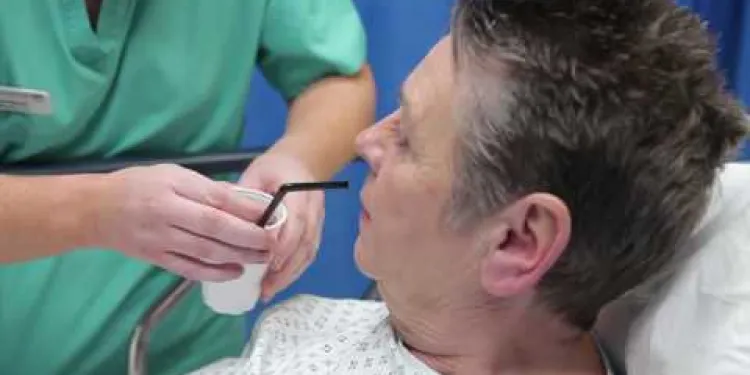
Hip replacement
Relevance: 78%
-

What is a hip replacement?
Relevance: 75%
-

Do I need a Hip Replacement?
Relevance: 74%
-
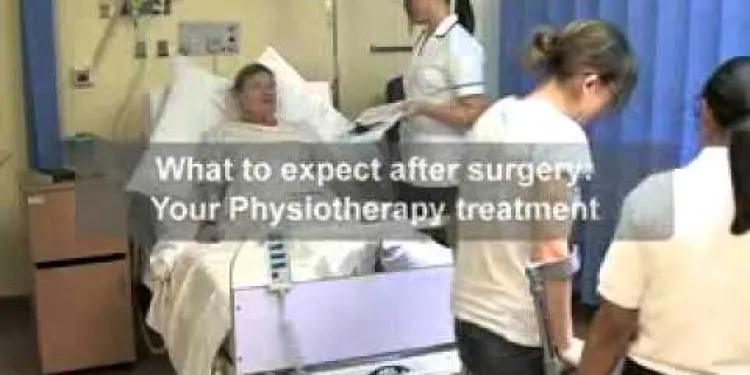
Total hip replacement
Relevance: 70%
-

Total Hip Replacement
Relevance: 70%
-

Can both hips be replaced at the same time?
Relevance: 66%
-

Total hip replacement at Northumbria Healthcare
Relevance: 65%
-

What is the recovery time for a hip replacement?
Relevance: 64%
-
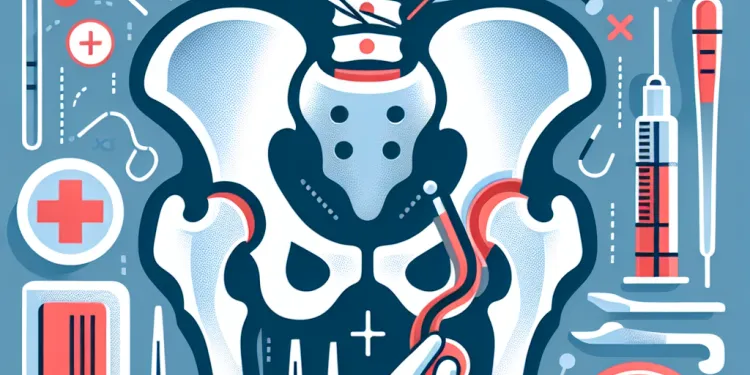
What is minimally invasive hip replacement surgery?
Relevance: 62%
-
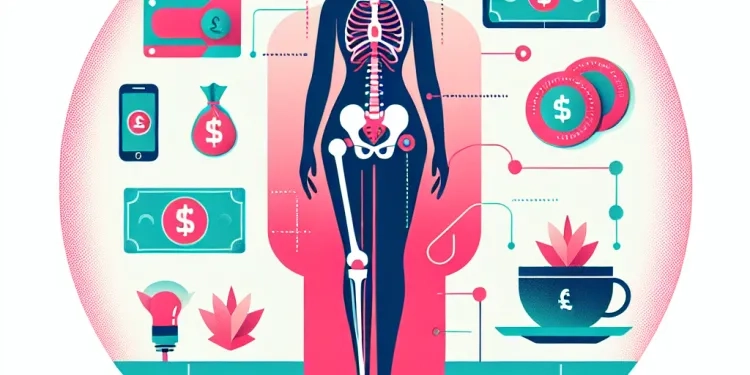
What are the risks associated with hip replacement surgery?
Relevance: 62%
-

How do I prepare for hip replacement surgery?
Relevance: 58%
-
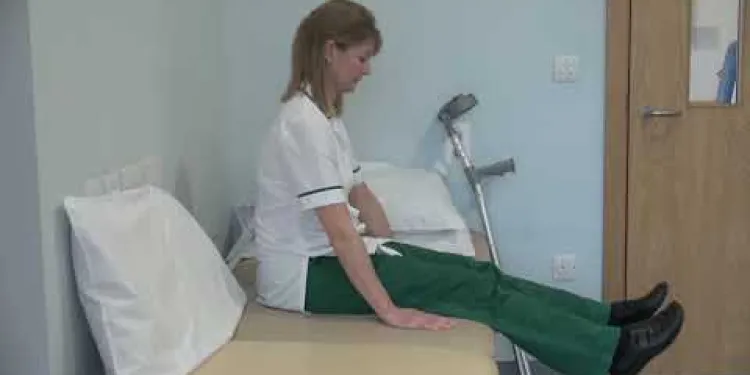
Hip replacement - getting into bed
Relevance: 58%
-

How long does it take to recover from a hip replacement operation?
Relevance: 56%
-

How long does a hip replacement surgery take?
Relevance: 55%
-

How much does hip replacement surgery cost in the UK?
Relevance: 55%
-
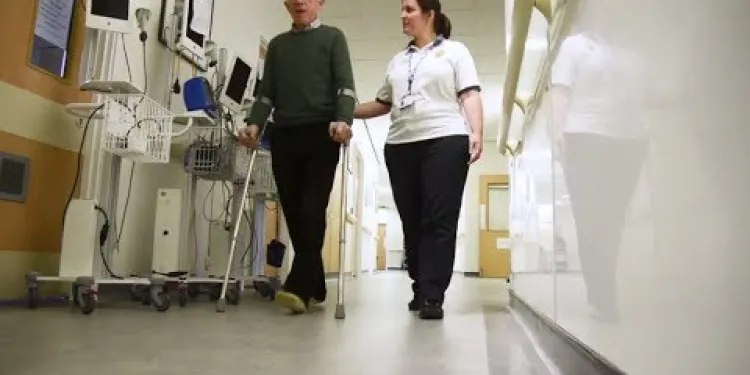
Having a hip replacement - Part Two: Recovery
Relevance: 54%
-

Osteoarthritis of the Hip
Relevance: 53%
-

What type of anaesthesia is used during hip replacement surgery?
Relevance: 52%
-

Osteoarthritis of the Hip
Relevance: 51%
-
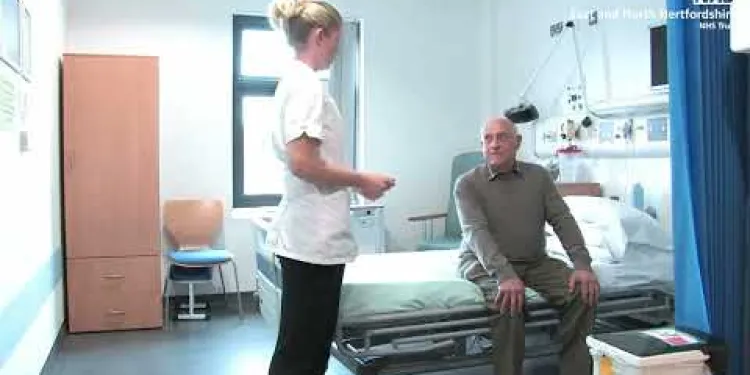
A journey to hip surgery
Relevance: 50%
-
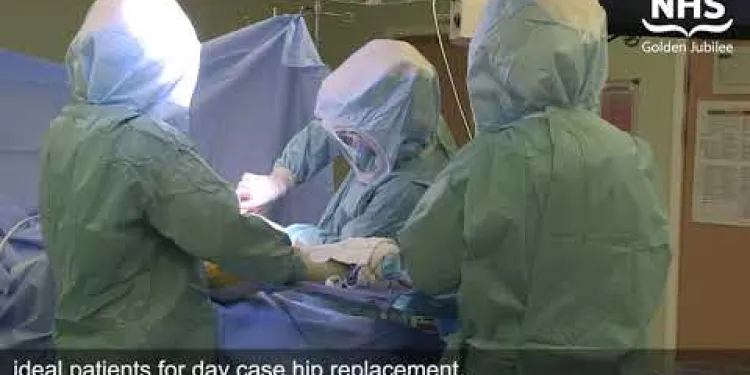
Same day discharge for NHS Golden Jubilee’s hip replacement patients
Relevance: 50%
-

Your anaesthetic choices for your planned hip or knee replacement surgery at the RUH.
Relevance: 44%
-

Is hormone replacement therapy safe for menopause masking?
Relevance: 43%
-

How long do hip replacement implants last?
Relevance: 43%
-
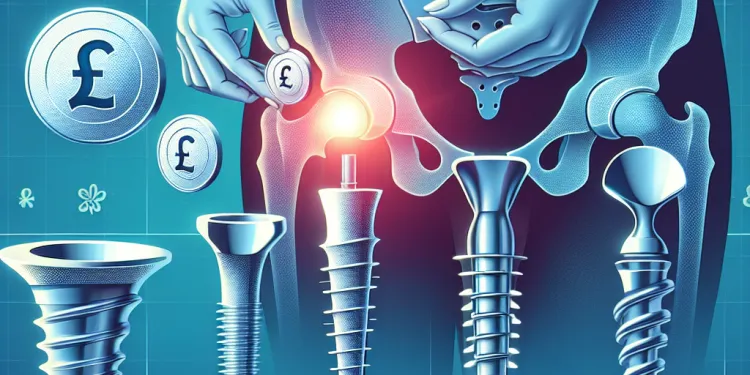
Are there different types of hip implants?
Relevance: 43%
-
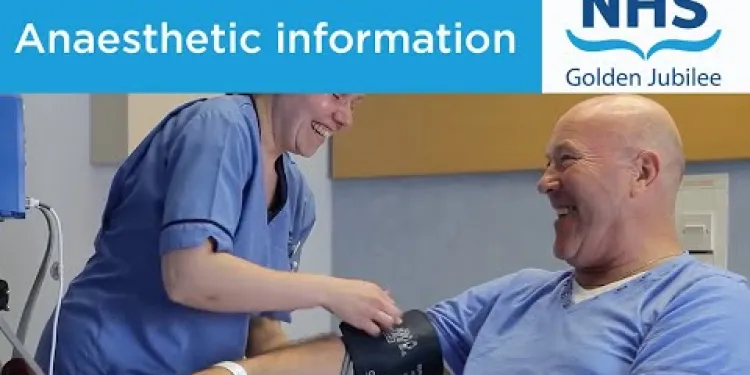
Knee replacement
Relevance: 41%
-

Will I be able to return to normal activities after hip replacement?
Relevance: 41%
-

Will the digital driving license replace the physical card?
Relevance: 41%
-
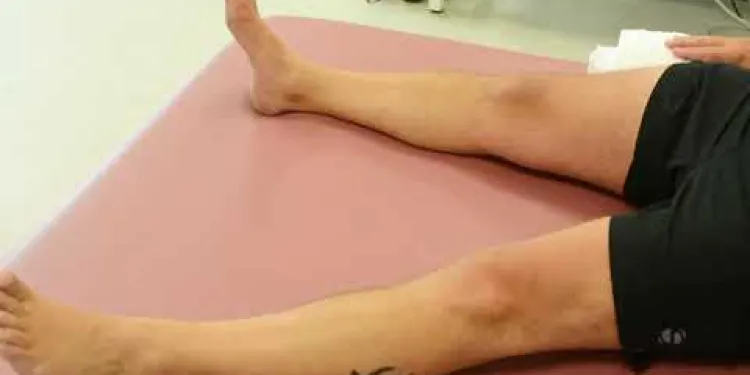
Joint School - Hip Exercises
Relevance: 41%
-
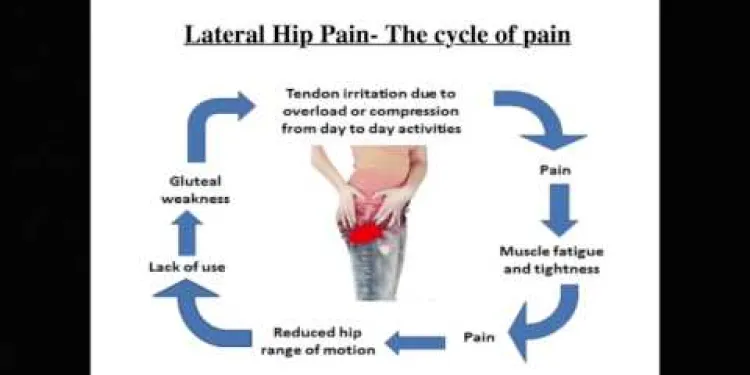
Advice - How to manage your lateral hip pain
Relevance: 39%
-

Can hormone replacement therapy (HRT) impact dementia risk?
Relevance: 39%
-
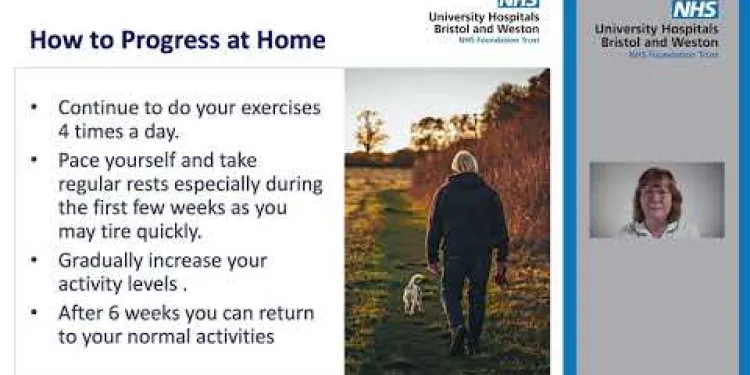
Enhanced Recovery - Hip
Relevance: 38%
-

Can physical therapy help whiplash?
Relevance: 38%
-

What can I expect during the first few weeks after hip replacement surgery?
Relevance: 38%
-

Total Knee Replacement
Relevance: 37%
-
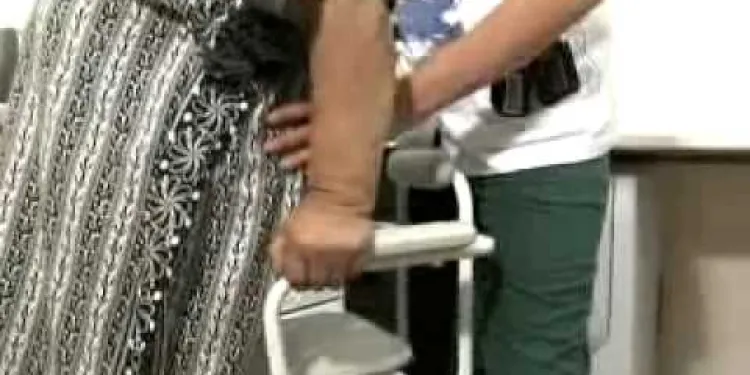
Total knee replacement
Relevance: 35%
-
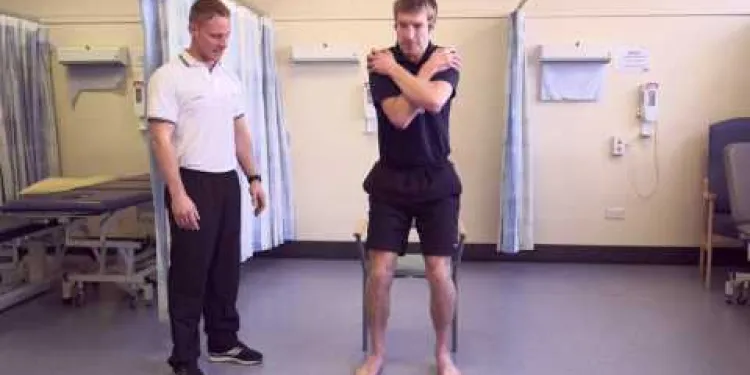
Exercises to help your lateral hip pain
Relevance: 33%
-

Who is a candidate for a hip replacement?
Relevance: 32%
-

Can physical symptoms be linked to relationship-induced depression?
Relevance: 28%
Understanding Hip Replacement
Hip replacement surgery is a common procedure in the UK, primarily performed to relieve pain and improve mobility for individuals with severe hip damage, often due to arthritis or injury. During the surgery, a surgeon removes the damaged sections of the hip joint and replaces them with artificial parts, usually made from metal, plastic, or ceramic.
The Role of Physical Therapy
Physical therapy is an essential part of the recovery process after a hip replacement. It aims to help patients regain movement, strengthen the hip muscles, and improve balance and coordination. This rehabilitation process ensures that the new joint functions well and that patients can return to their normal activities with minimal risk of complications.
Typical Physical Therapy Process
Physical therapy generally begins soon after surgery, often within a day, while the patient is still in hospital. Initially, the focus is on simple exercises to promote blood circulation and prevent stiffness. Patients will be taught how to walk with the aid of a walker or crutches, practicing weight-bearing as recommended by their surgeon.
After discharge from the hospital, outpatient physical therapy sessions typically continue for several weeks. These sessions may take place in a clinic or at home, based on personal preferences and medical advice. Therapists usually design a tailored exercise program to ensure that the patient's recovery is both efficient and safe.
Benefits of Physical Therapy
Participating in physical therapy after hip replacement offers numerous benefits. It helps in reducing pain and swelling associated with the surgery. By strengthening the muscles around the hip joint, physical therapy also aids in preventing future injuries. Moreover, committing to the recommended exercises can significantly enhance flexibility and improve overall mobility.
Patients who adhere to their physical therapy regimen often find that they regain independence more quickly, resume daily activities comfortably, and experience a better quality of life overall. Additionally, consistent physical therapy can help in minimizing the risk of post-surgical complications, such as blood clots or joint dislocation.
Individual Recovery Journey
It is important to understand that recovery varies from person to person. Factors such as age, overall health, and the specifics of the surgery can influence the duration and intensity of physical therapy needed. Patients should follow their healthcare provider's recommendations closely and communicate regularly with their therapist and surgeon to monitor progress.
Conclusion
Physical therapy is usually a critical component of recovery after a hip replacement, enhancing the surgery's success and helping patients regain strength and mobility. By actively participating in a comprehensive therapy program, patients can optimize their recovery outcomes and enjoy a more active lifestyle post-surgery.
Understanding Hip Replacement
Hip replacement surgery is a common operation in the UK. It is done to reduce pain and help people move better. People usually need this surgery because of bad hip damage from arthritis or injuries. In the surgery, doctors take out the damaged parts of the hip and put in new parts. These new parts can be made from metal, plastic, or ceramic.
The Role of Physical Therapy
Physical therapy is very important after hip replacement surgery. It helps people move better, make their hip muscles stronger, and improve their balance. With physical therapy, the new hip joint works well, and people can go back to their normal activities without many problems.
Typical Physical Therapy Process
Physical therapy usually starts soon after surgery, often the next day, while the person is still in the hospital. At first, the exercises are simple. They help with blood flow and prevent stiffness. People learn how to walk using a walker or crutches. They practice putting weight on their new hip as their doctor says.
After leaving the hospital, people keep going to physical therapy for a few weeks. This can be at a clinic or at home. The therapist makes a special exercise plan for each person to make sure they recover well and safely.
Benefits of Physical Therapy
Doing physical therapy after hip surgery has many benefits. It helps reduce pain and swelling from the surgery. By making the muscles around the hip stronger, therapy also helps stop more injuries. Doing the exercises can make people more flexible and help them move better.
People who do their exercises as told feel better faster. They can do everyday activities more easily and have a better life. Also, regular physical therapy can lower the chance of having problems after surgery, like blood clots or the hip joint moving out of place.
Individual Recovery Journey
Everyone heals differently. Things like age, overall health, and details of the surgery affect how long and how hard therapy will be. People should listen to their healthcare team and talk often with their therapist and doctor to keep an eye on how they are doing.
Conclusion
Physical therapy is a key part of healing after hip replacement surgery. It makes the surgery work better and helps people get back their strength and movement. By doing therapy, people can have a better recovery and enjoy being more active after surgery.
Frequently Asked Questions
What is the purpose of physical therapy after a hip replacement?
Physical therapy helps to restore mobility, improve strength, and accelerate recovery after a hip replacement.
When does physical therapy typically start after a hip replacement?
Physical therapy often begins within a day or two after surgery while you are still in the hospital.
How long will I need physical therapy after my hip replacement surgery?
The duration of physical therapy can vary, but it typically lasts from several weeks to a few months.
Do all patients need physical therapy after a hip replacement?
Most patients benefit from physical therapy, but the specific needs may vary based on individual circumstances.
Will my insurance cover physical therapy after a hip replacement?
Many insurance plans cover physical therapy after surgery, but it's important to check with your provider for details.
What exercises will I do during physical therapy after a hip replacement?
Therapy may include exercises to improve range of motion, strength, and balance.
Can physical therapy be done at home after a hip replacement?
Yes, many patients continue with a home exercise program after attending therapy sessions.
How often will I need to attend physical therapy sessions after surgery?
Your physical therapist will determine how often you need to attend, typically 1-3 times per week.
What can I do to prepare for physical therapy after a hip replacement?
It's helpful to have a comfortable area for exercise at home and to arrange transportation for therapy appointments.
What are some common goals of physical therapy after a hip replacement?
Key goals include reducing pain, improving movement, preventing blood clots, and ensuring proper healing.
Is physical therapy painful after a hip replacement?
Physical therapy may cause some discomfort, but it should not be excessively painful. Communicate with your therapist about any pain.
How soon can I walk after hip replacement surgery with the help of physical therapy?
Most patients are encouraged to walk with assistance from a physical therapist as soon as the day of or the day after surgery.
Will physical therapy help improve my balance after hip replacement surgery?
Yes, improving balance is an important part of the therapy process after a hip replacement.
Can I choose my physical therapist after a hip replacement surgery?
In most cases, you can choose your therapist, but it's a good idea to choose someone experienced in post-surgical rehabilitation.
Are there risks associated with skipping physical therapy after a hip replacement?
Skipping therapy could result in prolonged recovery, reduced mobility, or complications such as stiffness or weakness.
What should I wear to my physical therapy sessions after a hip replacement?
Wear comfortable clothes and supportive shoes that allow for easy movement.
Will I need any special equipment for physical therapy after my hip replacement?
Your therapist might recommend equipment like a reacher, sock aid, or walker, especially in the early stages of recovery.
How will physical therapy help me regain full function in my hip?
Therapists use specific exercises to help you regain strength, flexibility, and endurance in your hip.
Can I stop physical therapy early if I feel better after a hip replacement?
You should consult your physical therapist and surgeon before making any changes to your therapy schedule.
What should I expect in the first physical therapy session after hip replacement?
Your therapist will assess your mobility, pain level, and discuss goals for your recovery to create a personalized plan.
Why is exercise important after a new hip?
Exercise after getting a new hip helps you get better. It makes your muscles strong and helps you move easier.
Try doing simple exercises every day. A therapist can show you how.
Use tools like bands or balls if it helps.
If you need help, ask an adult or a therapist to guide you.
Physical therapy can help you move better after a hip operation. It makes your body stronger and helps you get better faster.
When do you start exercises after hip surgery?
After hip surgery, you start doing special exercises. These exercises help you get strong again.
You might start these exercises on the same day or the day after your surgery.
A physiotherapist will show you what to do. A physiotherapist is a person who helps you move and get stronger.
If you need help to learn the exercises, you can use picture guides or watch videos.
Physical therapy usually starts one or two days after your surgery when you are still in the hospital. This helps you to get better and move easier.
How long will I need help to move better after my new hip?
Physical therapy usually takes time. It can be from a few weeks to a few months.
Do all people need help moving after a new hip?
After getting a new hip, some people might need help to move around well again. This help is called physical therapy.
Not everyone will need this help, but many do. The doctor's team will decide what's best for you.
If you need help, it might include learning how to walk, stretch, and get strong again.
To make it easier, you can use pictures, videos, or ask a helper to show you what to do.
Physical therapy can help most people, but each person might need something different.
Will my insurance pay for physical therapy after I get a new hip?
A lot of insurance plans help pay for physical therapy after you have surgery. But, you should talk to your insurance company to know more about it.
What exercises will I do in physical therapy after a hip replacement?
After you get a new hip, you will have physical therapy to help you get better. Here are some exercises you might do:
- Walking: Walking helps your hip get strong. You might use a walker or crutches at first.
- Ankle Pumps: You move your foot up and down. This helps with blood flow.
- Knee Bends: Bend your new knee to make your leg bend well.
- Leg Raises: Lift your leg straight up to make it strong.
- Hip Slides: Slide your heel on the bed to bend your knee.
These exercises help your new hip feel good. You should do them slowly and with help if you need it.
Always listen to your therapist’s advice. They will show you how to do the exercises safely.
If you find it hard to remember the exercises, you can:
- Ask someone to do them with you.
- Use pictures or videos to help you.
- Write the exercises down in simple steps.
Therapy can help your body move better. You might do exercises to make your muscles stronger and to help you stand and walk without falling.
Can you do exercises at home after a new hip?
Yes, you can do special exercises at home after getting a new hip. These exercises help you get strong and move better.
Here are some tips to help:
- Ask your doctor what exercises are safe for you.
- Get help from a family member or friend if you need it.
- Use a video or guide to show you how to do the exercises.
- Do the exercises slowly and carefully.
These tips can help you feel better and get back to doing things you like.
Yes, lots of people keep doing exercises at home after going to therapy.
How many times will I go to physical therapy after my surgery?
After your surgery, your doctor will tell you how many times you need to go to physical therapy. Usually, people go a few times each week.
Ask your doctor these questions to help you understand:
- How many sessions will I need each week?
- For how many weeks will I need therapy?
If reading is hard, you can ask someone you trust to explain it to you. You can also ask the doctor to write down the plan for you.
Your physical therapist will decide how many times you need to go. This is usually 1 to 3 times each week.
How can I get ready for physical therapy after my hip surgery?
Here are some simple steps to help you:
- Ask your doctor or nurse what exercises are safe to do.
- Get a walking aid, like a cane or walker, if you need help moving around.
- Set up your home so it is safe and easy to move in, like clearing paths and putting away loose rugs.
- Use a reacher or grabber to pick up things without bending too much.
- Ask a friend or family member to help you at home.
- Remember to rest and not do too much at once.
Talk to your therapist. They will help you get stronger and move better after your surgery.
It’s good to have a comfy place at home to exercise. This helps you feel better.
Getting a ride to therapy is also important. This helps you go to your appointments.
What are some common goals of physical therapy after a hip replacement?
Here are some things that physical therapy can help you with after hip surgery:
- Get stronger: Physical therapy can help make your muscles stronger.
- Move better: You will learn to move your new hip easily.
- Reduce pain: Therapy can help make the pain go away.
- Walk safely: You will learn how to walk without falling.
Tools that can help you:
- Crutches or a walker: These can help you walk safely.
- Exercises: Simple exercises can help your hip get better.
The main goals are to make pain go away, help you move better, stop blood clots, and help your body heal well.
What does physical therapy feel like after getting a new hip?
If you've had hip surgery, you might have questions about physical therapy. It is an important part of healing. Physical therapy helps you get strong and move better.
Some people feel sore or a little hurt during exercises. This is normal as your body is getting used to moving again. Always tell your therapist if something hurts too much.
It's good to practice exercises at home too. Asking a family member or friend to help can make it easier.
Using simple tools can also help. Try using pillows to feel comfy when sitting or resting. Listening to music can make exercise more fun.
Remember to go at your own pace and rest when needed. Talk to your healthcare team about any worries. They are there to help you feel better.
Physical therapy can sometimes make you feel a bit sore, but it shouldn't hurt too much. Tell your therapist if you feel pain.
When can I start walking after my hip surgery with help from a therapist?
Most people who have surgery are told to start walking with help from a physical therapist. This can happen on the same day as the surgery or the day after.
Can exercises help me balance better after a new hip?
If you have a new hip, exercises can help you balance. A therapist can show you easy exercises to do.
Try to do them often. This helps your body get stronger. You will feel more steady on your feet.
Using a walking stick or holding onto furniture can help too. Ask your therapist what tools are good for you.
Yes, getting better at keeping your balance is important after having a new hip put in.
Can I pick my helper after hip surgery?
After you have hip surgery, you might need help to get better.
You can ask if you can choose the person who helps you with exercises. This person is called a therapist.
Here is what you can do:
- Talk to your doctor.
- Ask if you can meet different therapists.
- See who you feel good working with.
You can have a family member or friend help you with choices.
Most of the time, you can pick your therapist. It’s smart to pick someone who knows a lot about helping people recover after surgery.
What can happen if you don't do exercises after getting a new hip?
If you miss therapy, it might take longer to get better. You could also have trouble moving, or you might feel stiff or weak.
What should I wear to my physical therapy sessions after getting a new hip?
Here are some tips to help you:
- Wear comfy clothes. Choose things like loose pants or shorts and a soft shirt.
- Pick shoes that are easy to put on and take off, like sneakers.
- Make sure your clothes let you move easily.
- Ask your therapist if you need anything special.
Try using a reminder list to remember what to wear each time!
Wear comfy clothes and shoes that help you move easily.
Do I need special tools for physical therapy after my hip surgery?
If you are having therapy after your hip surgery, you might use some tools to help. These tools can make moving easier. Here are some things that might help you:
- Walker or Crutches: These help you walk safely.
- Grab Bars: These are bars you can hold on to in the bathroom.
- Reacher: This helps you pick up things from the floor.
- Sock Aid: This helps you put on socks by yourself.
- Raised Toilet Seat: This makes the toilet higher so it is easier to sit down and stand up.
Your doctor or therapist will tell you what you need.
Your therapist might suggest tools to help you, like a long stick to pick things up, a tool to help put on socks, or a walker to help you walk. These are helpful when you are just starting to get better.
How can physical therapy help my hip get better?
Therapists help you with special exercises. These exercises make your hip strong, bendy, and help you keep going without getting tired.
Can I finish physical therapy early if my hip feels better after surgery?
Talk to your doctor and therapist before you change your therapy times.
What will happen in my first physio session after hip surgery?
When you go to your first physio session after hip surgery, here is what you can expect:
- The physio will ask how you are feeling.
- You might learn some simple exercises to help your hip heal.
- The physio will check how you move your leg.
- You can ask any questions you have about getting better.
Bring someone to help you if you want. You can also write down notes to remember what the physio says.
Your therapist will check how well you can move and how much pain you have. They will talk with you about what you want to get better at. Then, they will make a special plan just for you.
Useful Links
This website offers general information and is not a substitute for professional advice.
Always seek guidance from qualified professionals.
If you have any medical concerns or need urgent help, contact a healthcare professional or emergency services immediately.
Some of this content was generated with AI assistance. We’ve done our best to keep it accurate, helpful, and human-friendly.
- Ergsy carfully checks the information in the videos we provide here.
- Videos shown by Youtube after a video has completed, have NOT been reviewed by ERGSY.
- To view, click the arrow in centre of video.
- Most of the videos you find here will have subtitles and/or closed captions available.
- You may need to turn these on, and choose your preferred language.
- Go to the video you'd like to watch.
- If closed captions (CC) are available, settings will be visible on the bottom right of the video player.
- To turn on Captions, click settings .
- To turn off Captions, click settings again.
More Items From Ergsy search
-

Will I need physical therapy after a hip replacement?
Relevance: 100%
-

Hip replacement
Relevance: 78%
-

What is a hip replacement?
Relevance: 75%
-

Do I need a Hip Replacement?
Relevance: 74%
-

Total hip replacement
Relevance: 70%
-

Total Hip Replacement
Relevance: 70%
-

Can both hips be replaced at the same time?
Relevance: 66%
-

Total hip replacement at Northumbria Healthcare
Relevance: 65%
-

What is the recovery time for a hip replacement?
Relevance: 64%
-

What is minimally invasive hip replacement surgery?
Relevance: 62%
-

What are the risks associated with hip replacement surgery?
Relevance: 62%
-

How do I prepare for hip replacement surgery?
Relevance: 58%
-

Hip replacement - getting into bed
Relevance: 58%
-

How long does it take to recover from a hip replacement operation?
Relevance: 56%
-

How long does a hip replacement surgery take?
Relevance: 55%
-

How much does hip replacement surgery cost in the UK?
Relevance: 55%
-

Having a hip replacement - Part Two: Recovery
Relevance: 54%
-

Osteoarthritis of the Hip
Relevance: 53%
-

What type of anaesthesia is used during hip replacement surgery?
Relevance: 52%
-

Osteoarthritis of the Hip
Relevance: 51%
-

A journey to hip surgery
Relevance: 50%
-

Same day discharge for NHS Golden Jubilee’s hip replacement patients
Relevance: 50%
-

Your anaesthetic choices for your planned hip or knee replacement surgery at the RUH.
Relevance: 44%
-

Is hormone replacement therapy safe for menopause masking?
Relevance: 43%
-

How long do hip replacement implants last?
Relevance: 43%
-

Are there different types of hip implants?
Relevance: 43%
-

Knee replacement
Relevance: 41%
-

Will I be able to return to normal activities after hip replacement?
Relevance: 41%
-

Will the digital driving license replace the physical card?
Relevance: 41%
-

Joint School - Hip Exercises
Relevance: 41%
-

Advice - How to manage your lateral hip pain
Relevance: 39%
-

Can hormone replacement therapy (HRT) impact dementia risk?
Relevance: 39%
-

Enhanced Recovery - Hip
Relevance: 38%
-

Can physical therapy help whiplash?
Relevance: 38%
-

What can I expect during the first few weeks after hip replacement surgery?
Relevance: 38%
-

Total Knee Replacement
Relevance: 37%
-

Total knee replacement
Relevance: 35%
-

Exercises to help your lateral hip pain
Relevance: 33%
-

Who is a candidate for a hip replacement?
Relevance: 32%
-

Can physical symptoms be linked to relationship-induced depression?
Relevance: 28%


